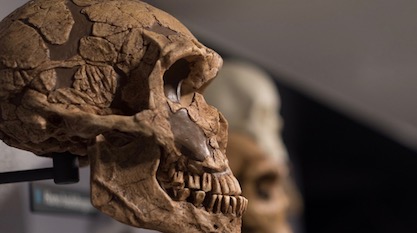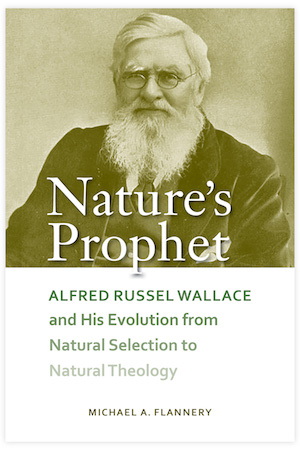 Evolution
Evolution
Wallace Broke with Darwin Over Human Exceptionalism


The split that divided the two founders of evolutionary theory, Charles Darwin and Alfred Russel Wallace, came to encompass a great deal more. But to begin with, they fell out over the issue of mankind’s exceptional gifts — part of what Wesley Smith calls human exceptionalism — and whether those gifts could be explained by unguided evolution alone.
 Science historian Michael Flannery is the author of the new book Nature’s Prophet: Alfred Russel Wallace and His Evolution from Natural Selection to Natural Theology. On an episode of ID the Future, he talks with fellow historian Mike Keas about this decisive turning point in the development of evolutionary theory.
Science historian Michael Flannery is the author of the new book Nature’s Prophet: Alfred Russel Wallace and His Evolution from Natural Selection to Natural Theology. On an episode of ID the Future, he talks with fellow historian Mike Keas about this decisive turning point in the development of evolutionary theory.
Wallace reasoned from Darwin’s own “principle of utility,” which holds that evolution preserves features that are of use in propagating a species. When we think of things that make humans special — whether those are intellectual, artistic, moral, spiritual — only the most wishful Darwinian just-so stories can explain what use they would be in the survival or reproduction of an ancient population of pre-human organisms. Dr. Keas mentions the contemplation of set theory, or theorizing about black holes, things that only humans can do. Those don’t do much to help you leave biological descendants.
In fact, our unique qualities share this across the board, without exception: from an evolutionary perspective, they’re useless. From this, an observation based in evidence not religious faith, Wallace reasoned his way to affirmation of an “Overruling Intelligence” — intelligent design by another name — at work in the long history of life. Of course, this was utterly unacceptable to his erstwhile colleague Darwin.
A thought-provoking conversation with Keas and Flannery. Download the podcast or listen to it here. Professor Flannery’s book from the University of Alabama Press is on sale now at the Discovery Institute Store for $26, a fine discount from the $44.95 cover price.
Photo credit: Paul Hudson, via Flickr (cropped).
